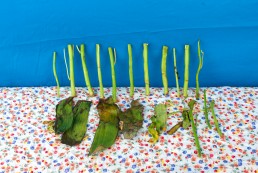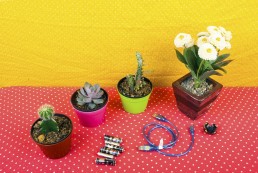Waste Less
Waste Less
Sutanto Nurhadi Permana (Harian Umum Galamedia, Bandung)
The landslide of the mountains of garbage incident at the Leuwigajah landfill is still lingering in the memory of the Bandung residents. This tragic incident in February 2005 has taken casualty of 157 lives and obliterated two villages. A tragedy that is both a slap and a lesson.
Fourteen years after the incident, Great Bandung still hasn’t moved on. People keep producing waste and finally the waste is piling up once again at the Sarimukti landfill, a temporary landfill after Leuwigajah landslide incident. The time period to use Sarimukti as a landfill will end in 2022.
Seeing this condition, this is the right moment to start a simple movement, which is to be a wiser individuals in managing domestic waste so these waste would not ended up at the landfill. Considering the fact Bandung produce up to 1,500 tons of waste per day.
Zero Waste, an innovative and simple movement to disentangled or even resolved the waste problem. Through five steps: Refuse, Reduce, Reuse, Recyle, and Rot, the zero waste movement seeks to reduce waste production and promote life without waste. These five steps are the basic and fundamental principles in managing waste.
The zero waste lifestyle encourages the community to make more use of organic waste. Choosing and sorting organic waste can solve the problem. This comes from the data that from 1.500 tons daily waste in Bandung, 70% of it is organic waste.
This program has been initiated in RW 16 Sadang Serang. Assisted by two disposal officers and a regular training by Bioscience and Biotechnology Development Foundation (YPBB), several houses began sorting their organic and inorganic waste. Furthermore, organic waste is managed directly in the area. Meanwhile, in RW 9 Tamansari, the movement is conducted by the head of RW, Abah Dadi. He processes up to 50 kg of organic waste every day using maggot, a predatory insect for organic waste. Maggot has economic value because it can be sold as livestock food.
Zero waste movement facing a tough and risky challenge in the economic and social structure for the community is so consumptive and practical.
The Government of Bandung accompanied the zero waste movement with Kang Pisman (Kurangi, Pisahkan, dan Manfaatkan – reduce, sort, and reuse) movement; for the realization of a waste free zone. The municipal government claims that the rate of transporting waste to the landfill from Bandung has decreased. If previously it had reached 5–10% per year, in 2019 it decreased to only 4%.
The zero waste movement is a simple step anyone can take to erase the Leuwigajah trash incident from their memory.









